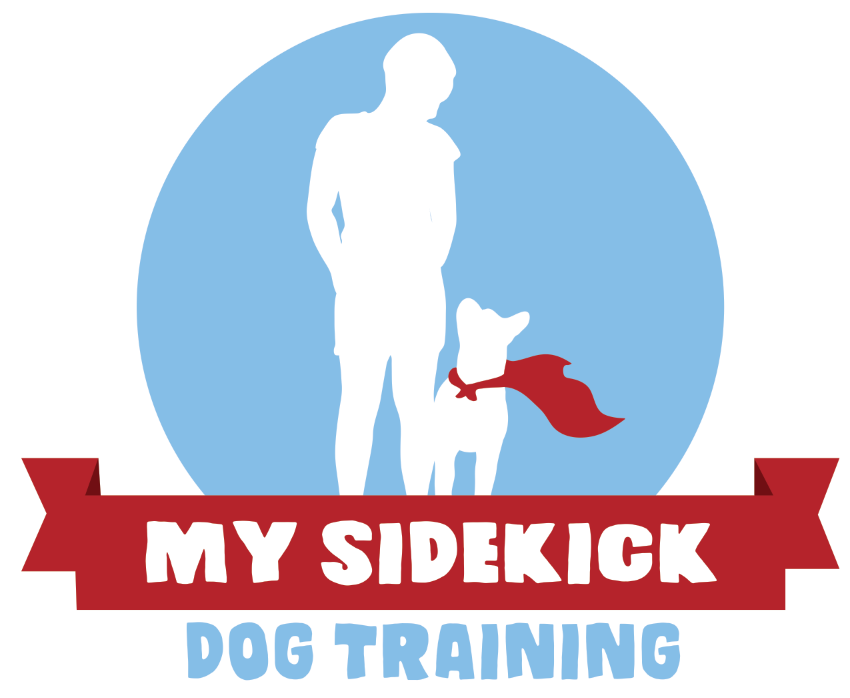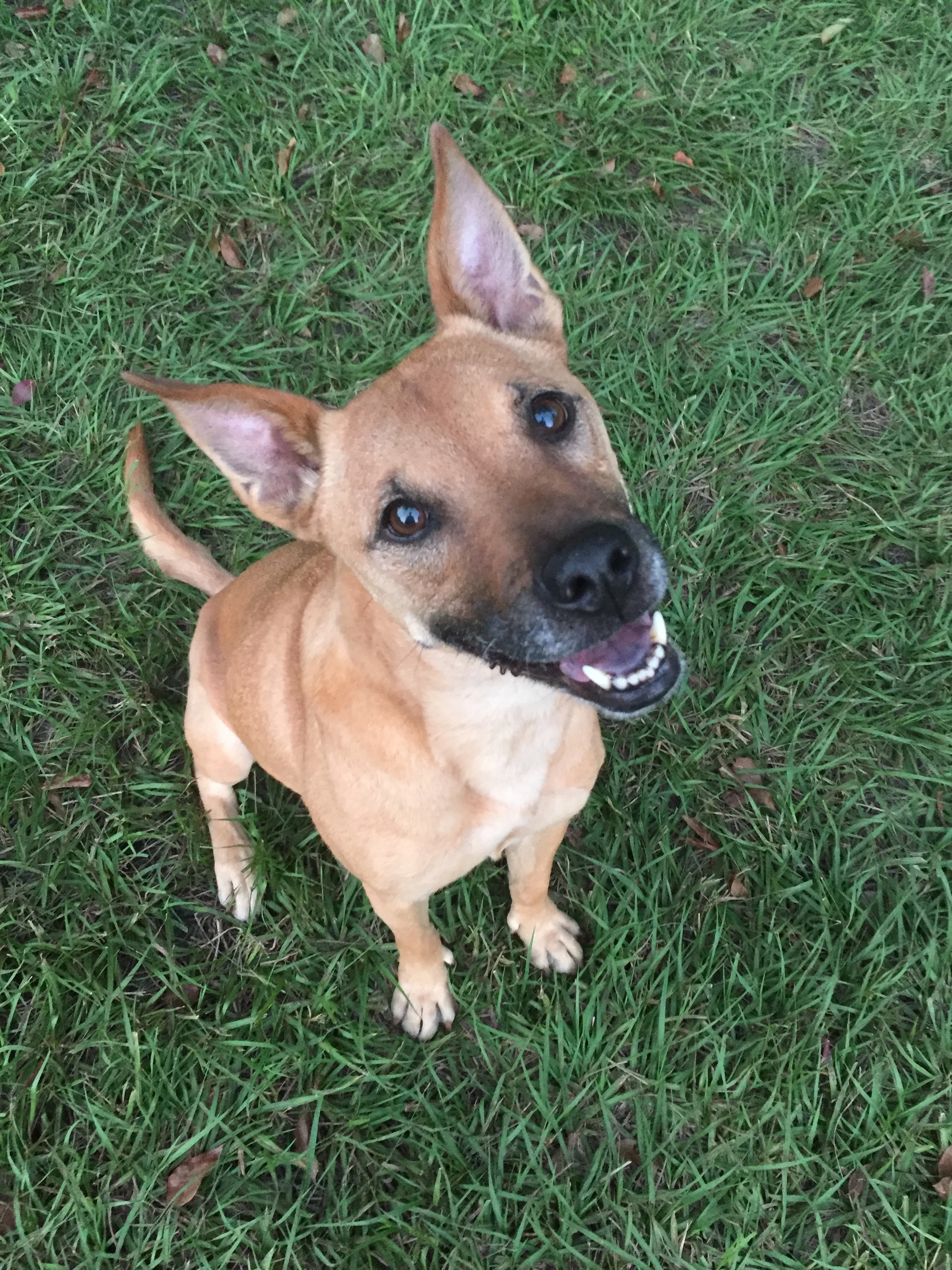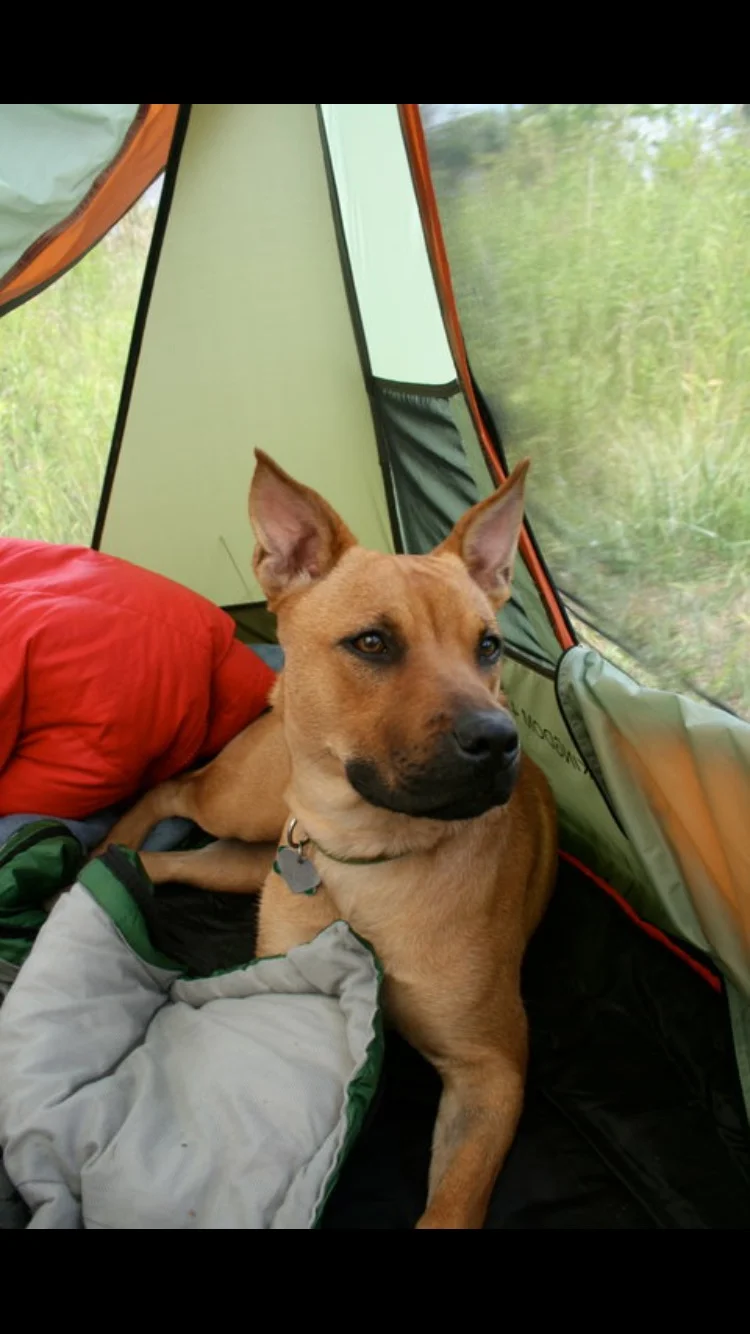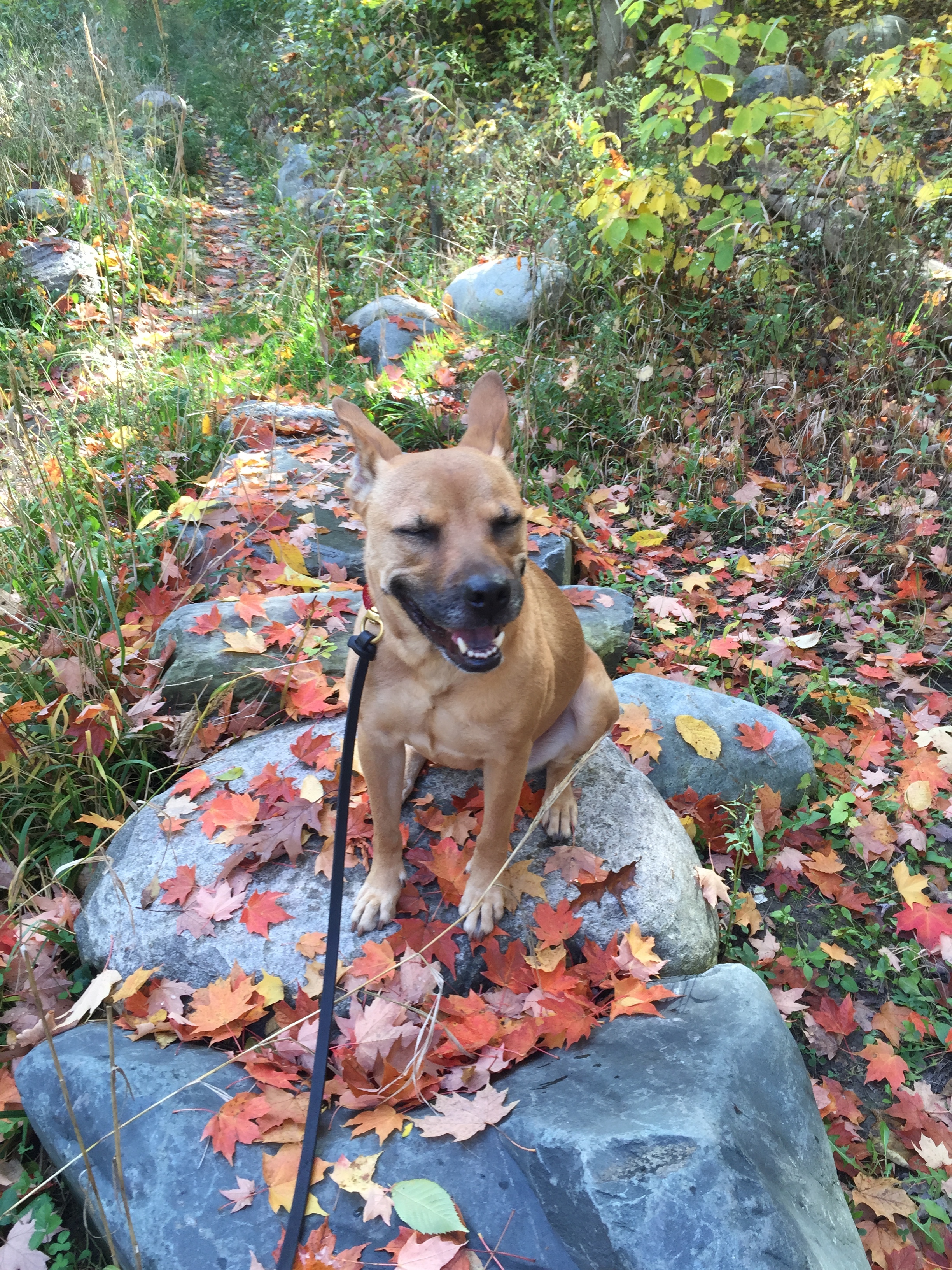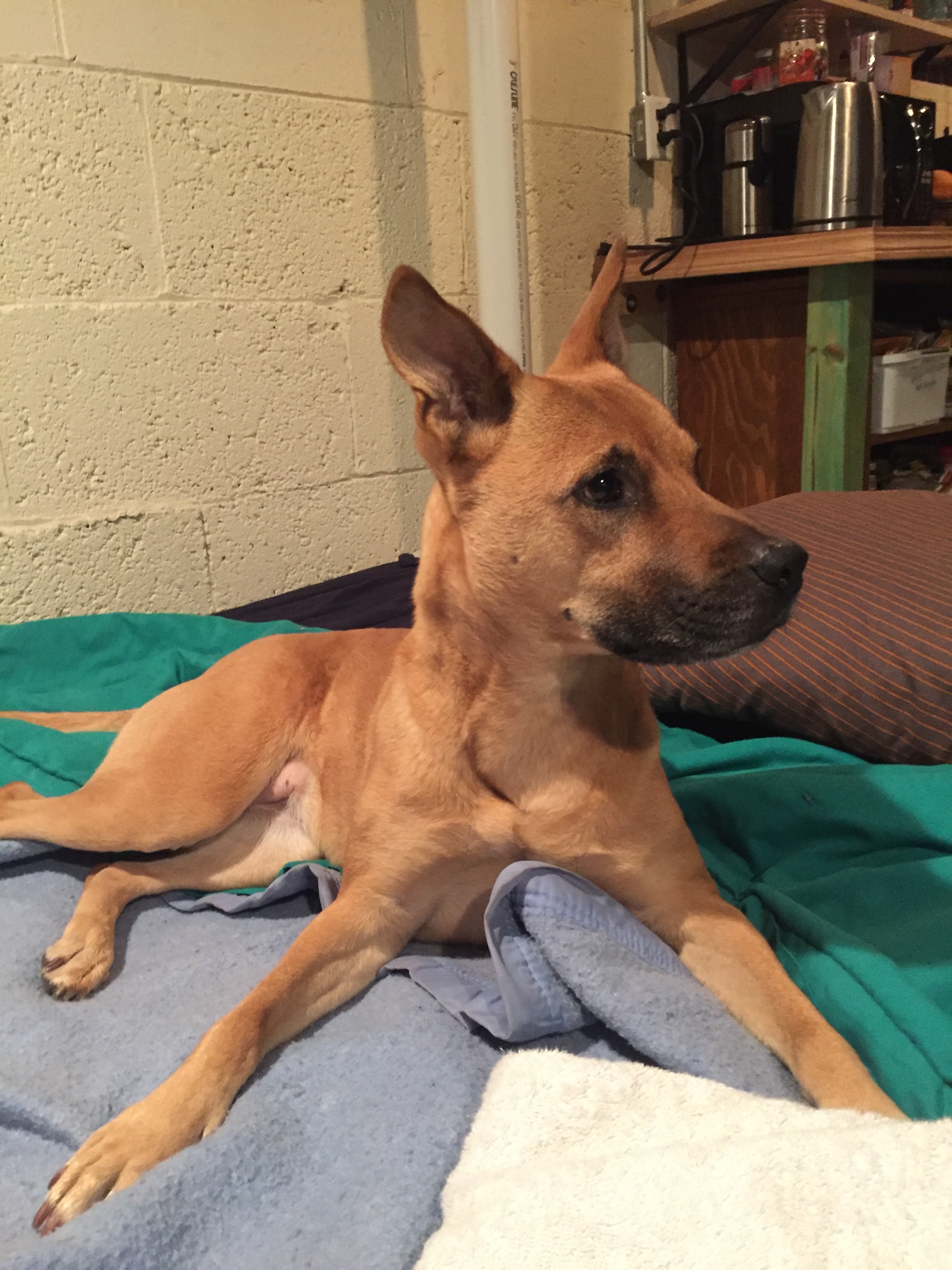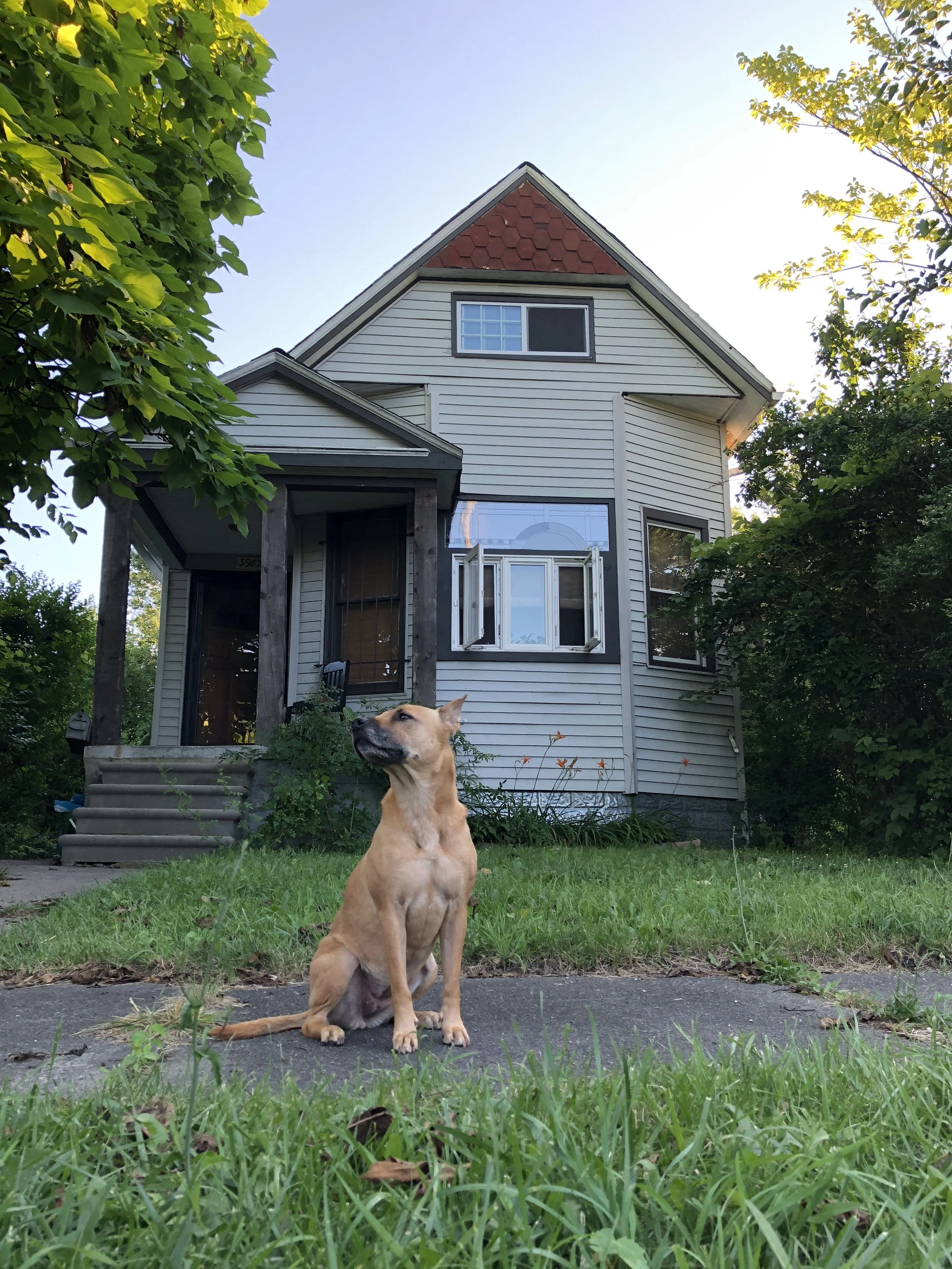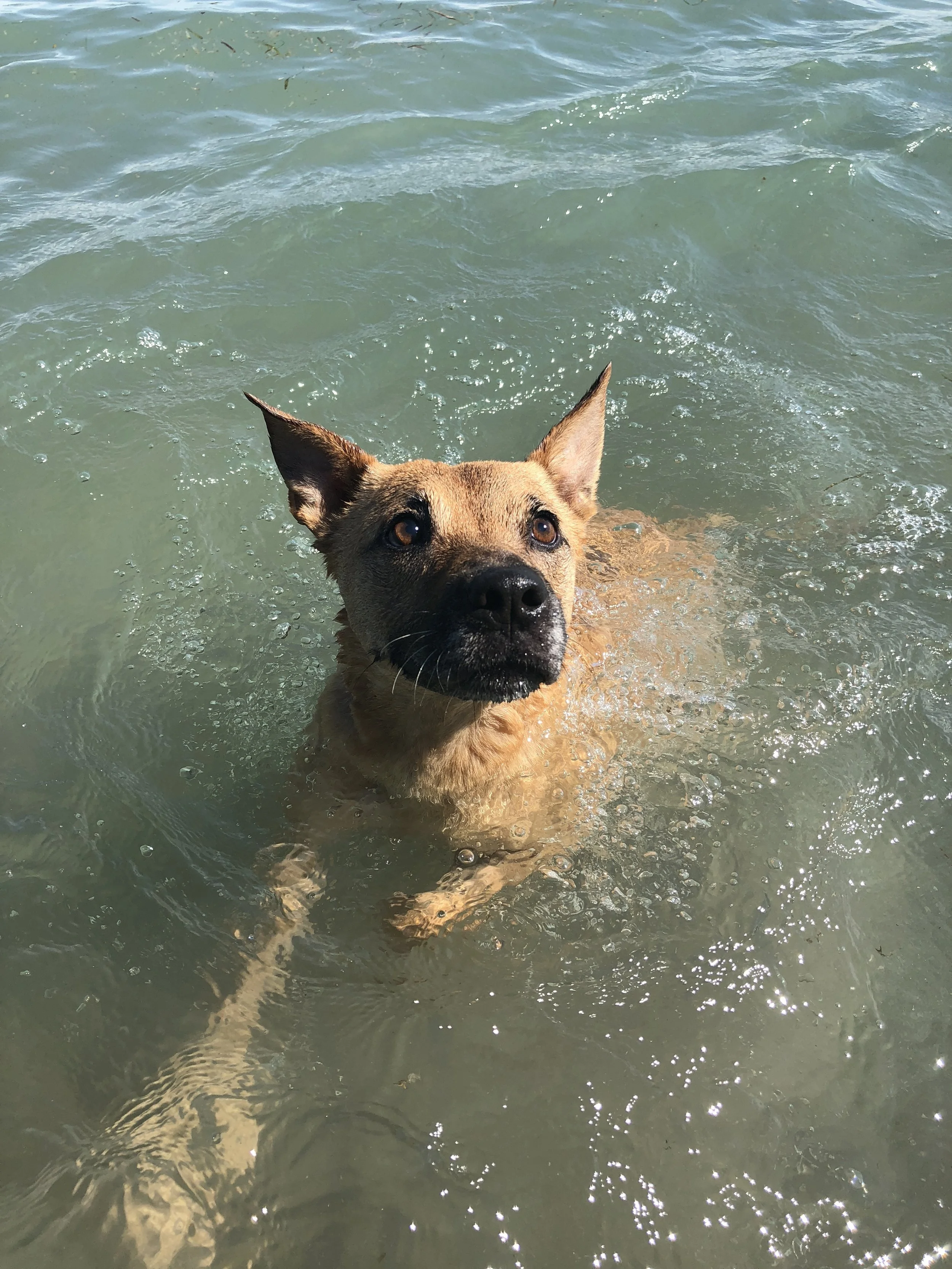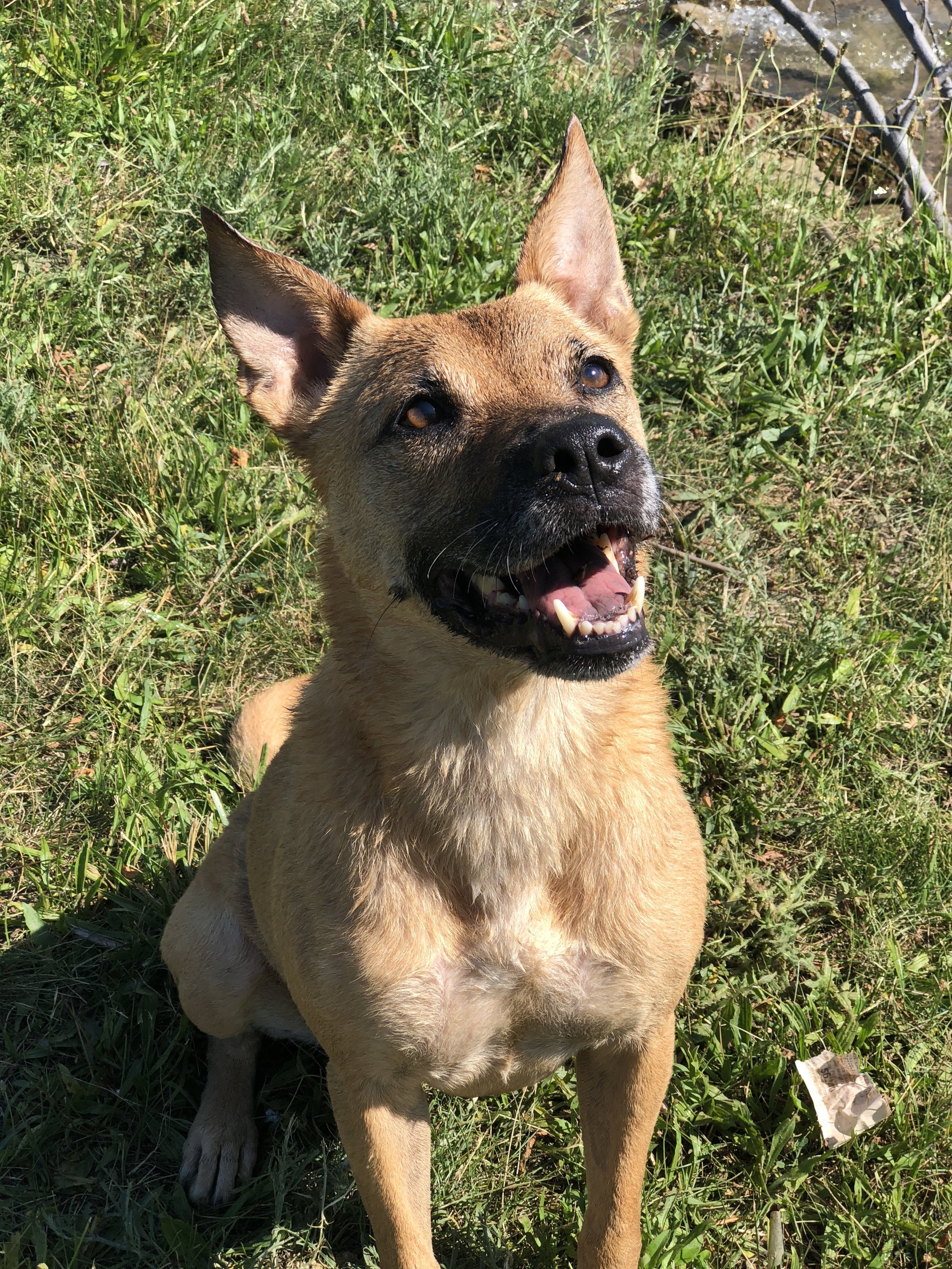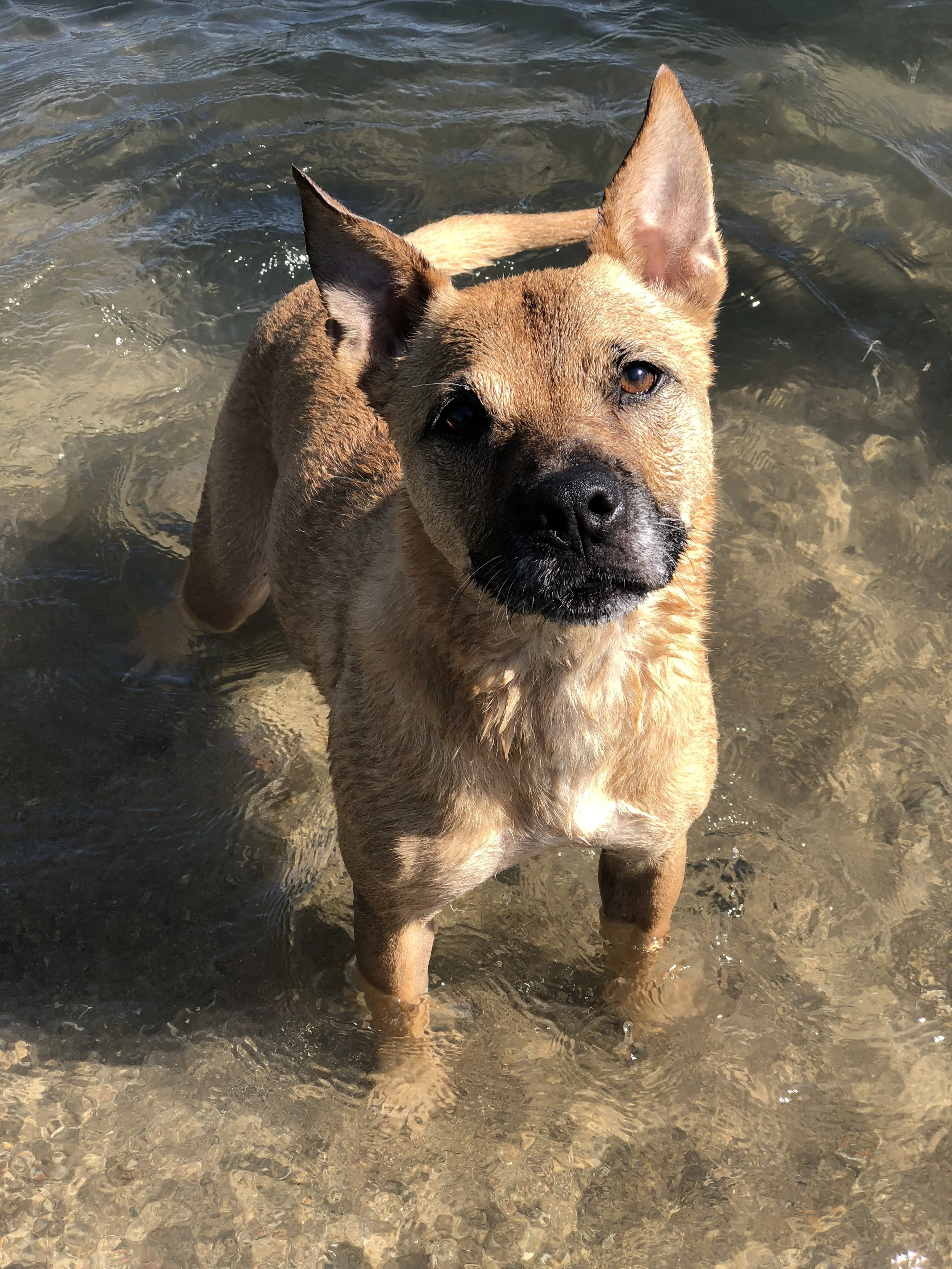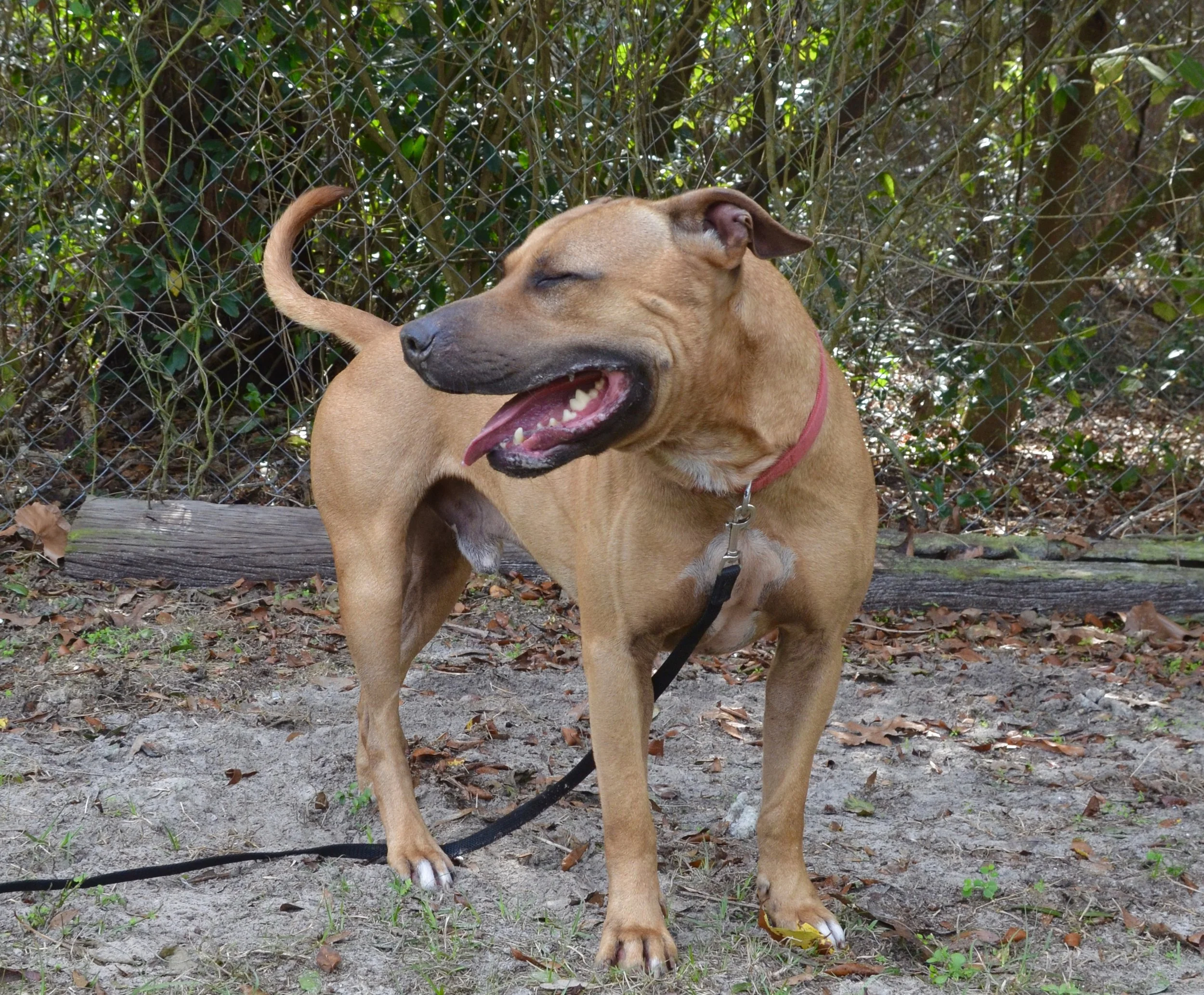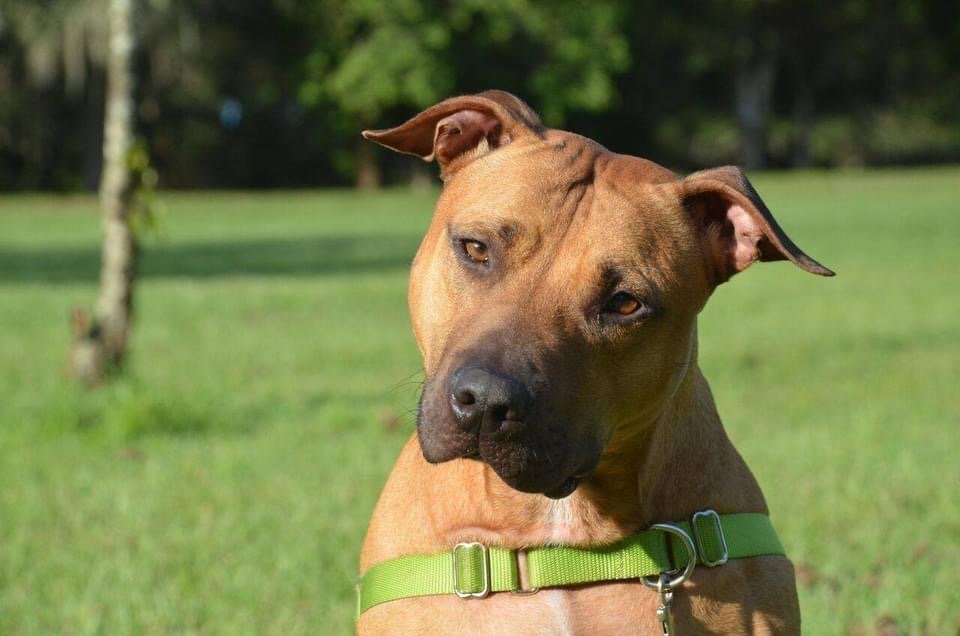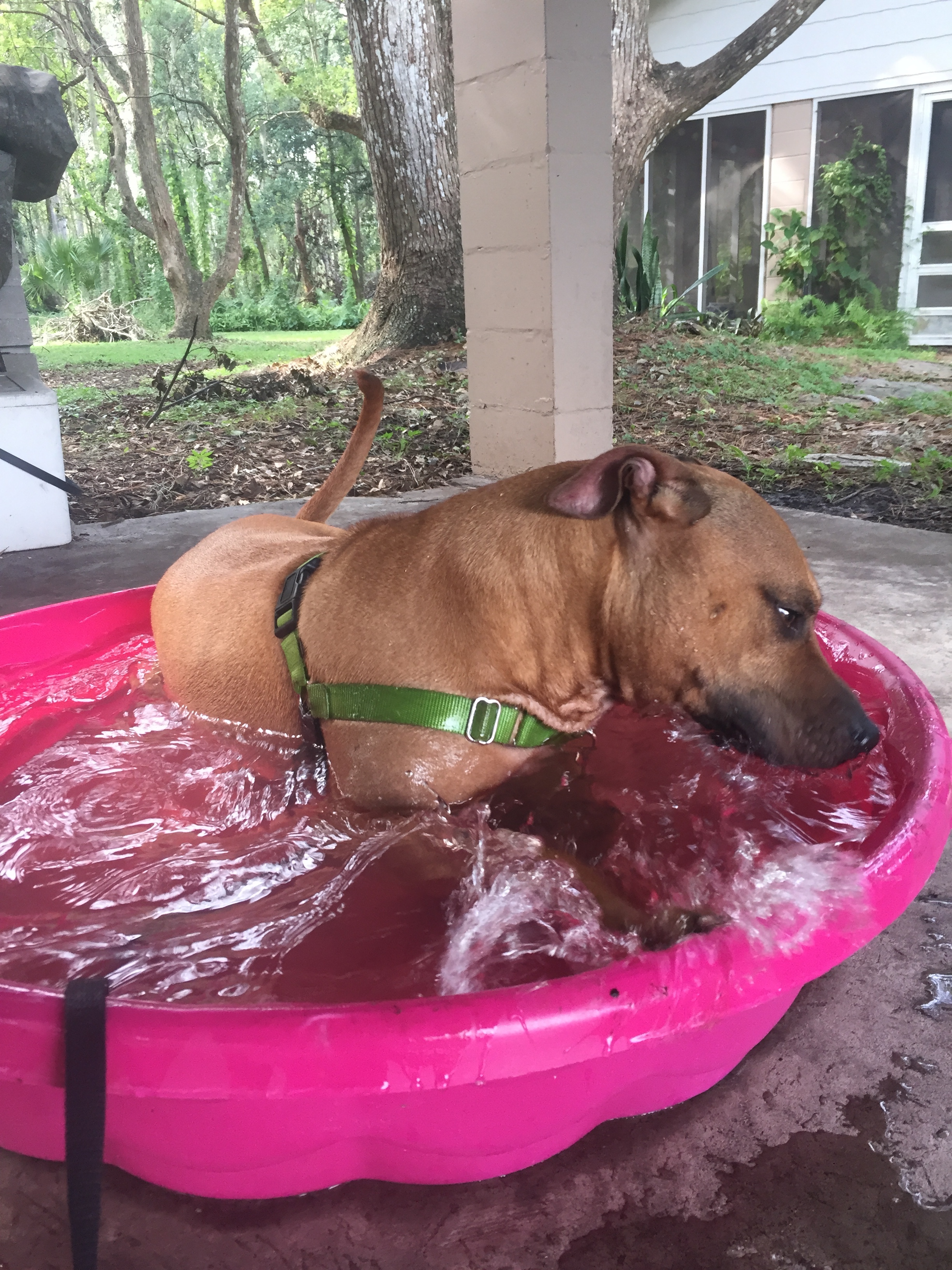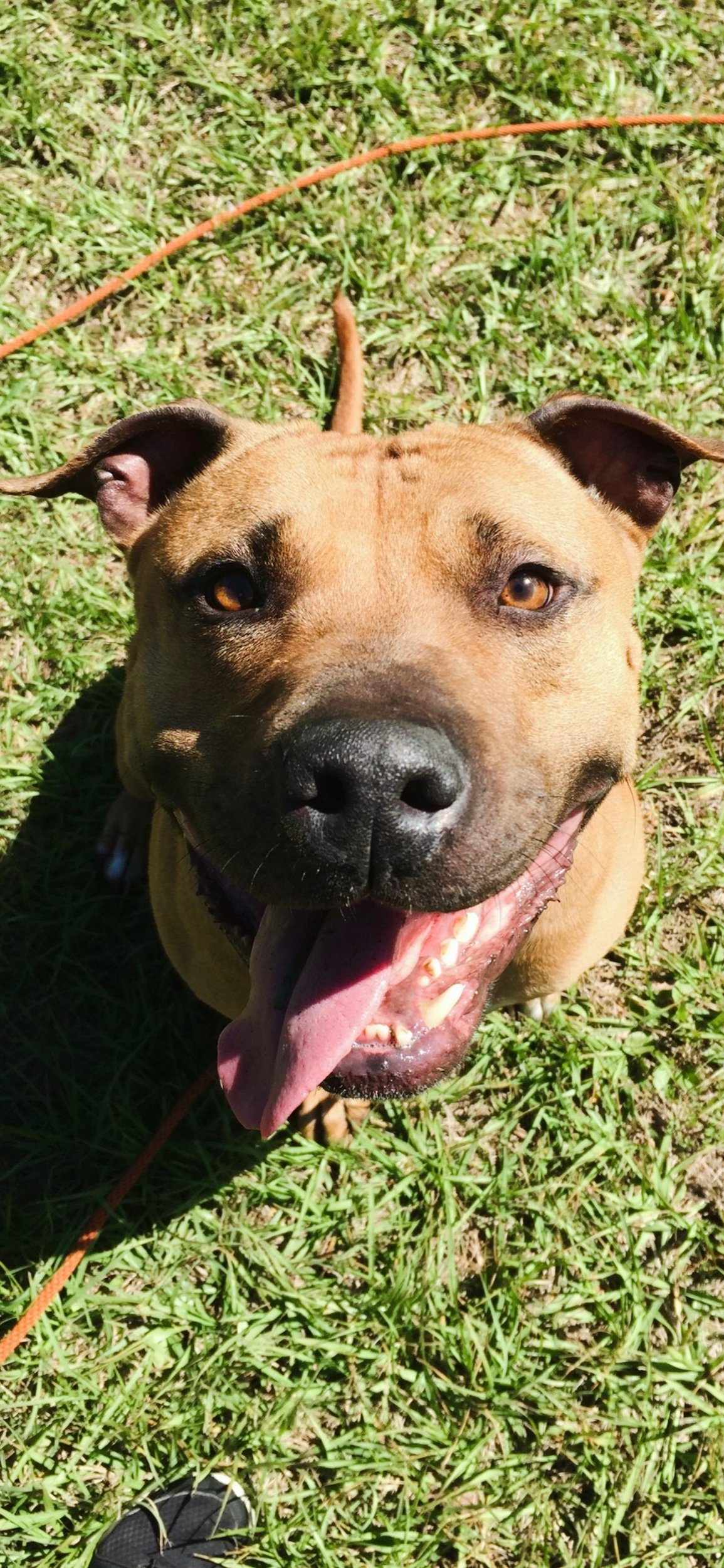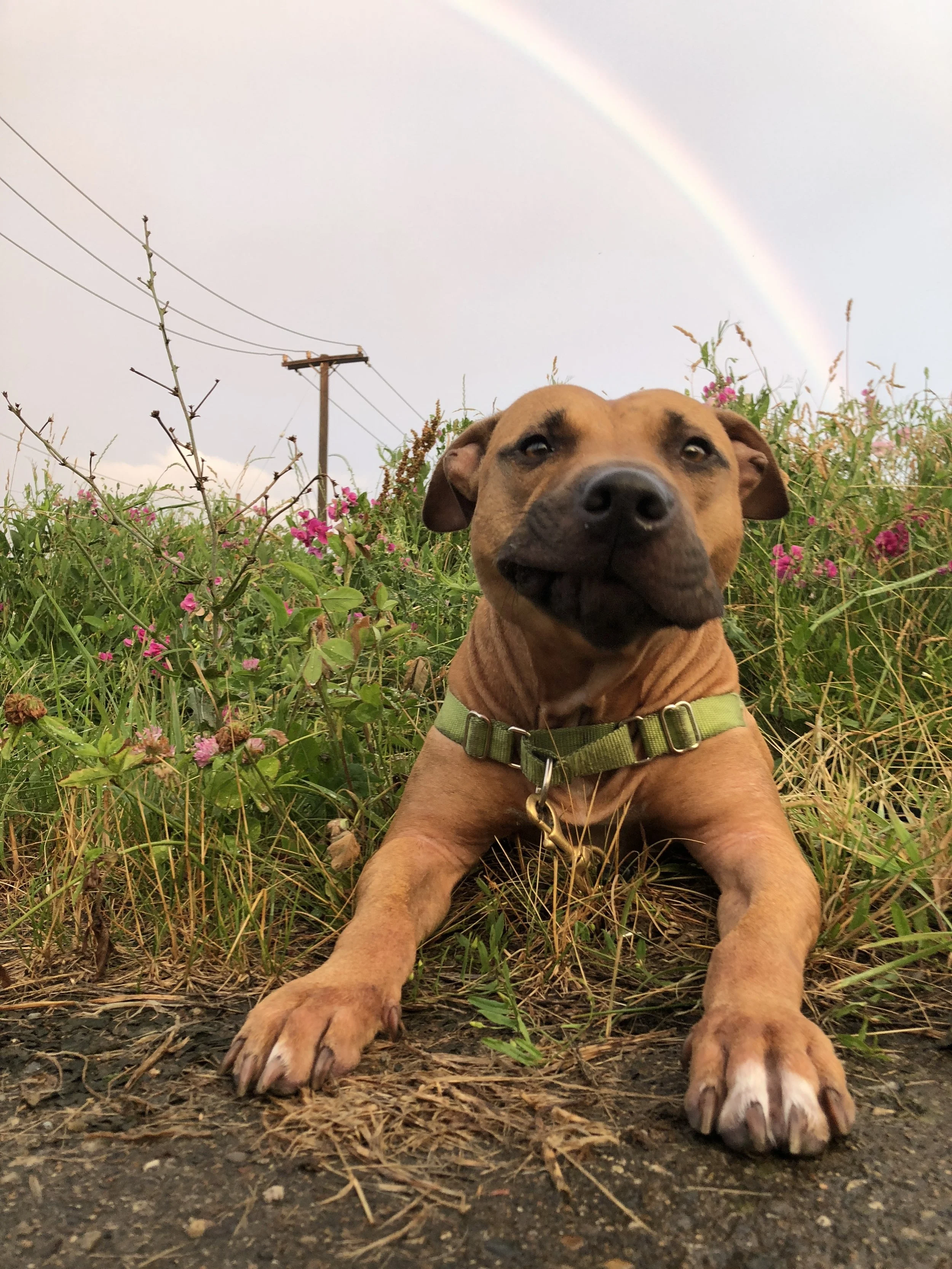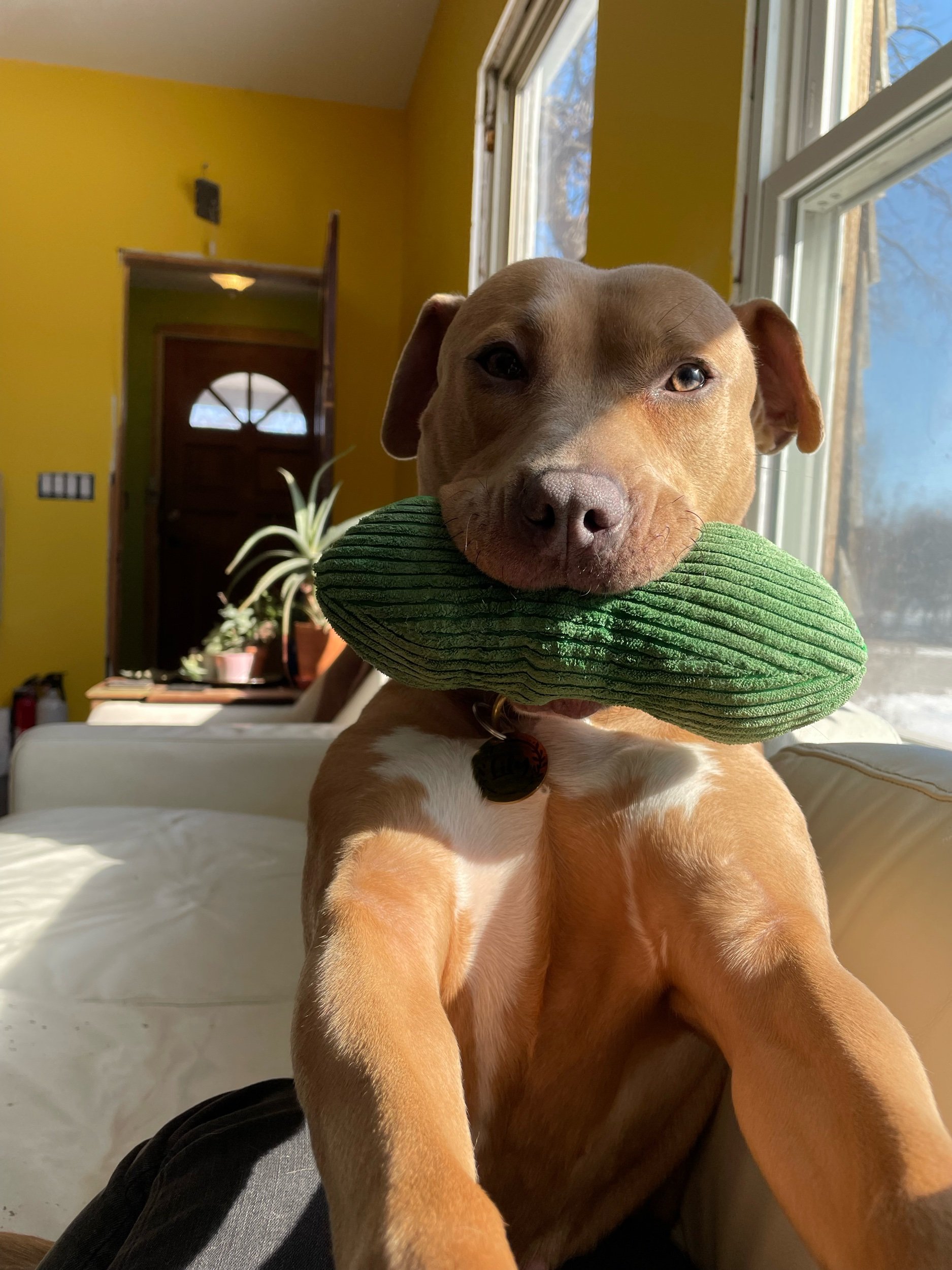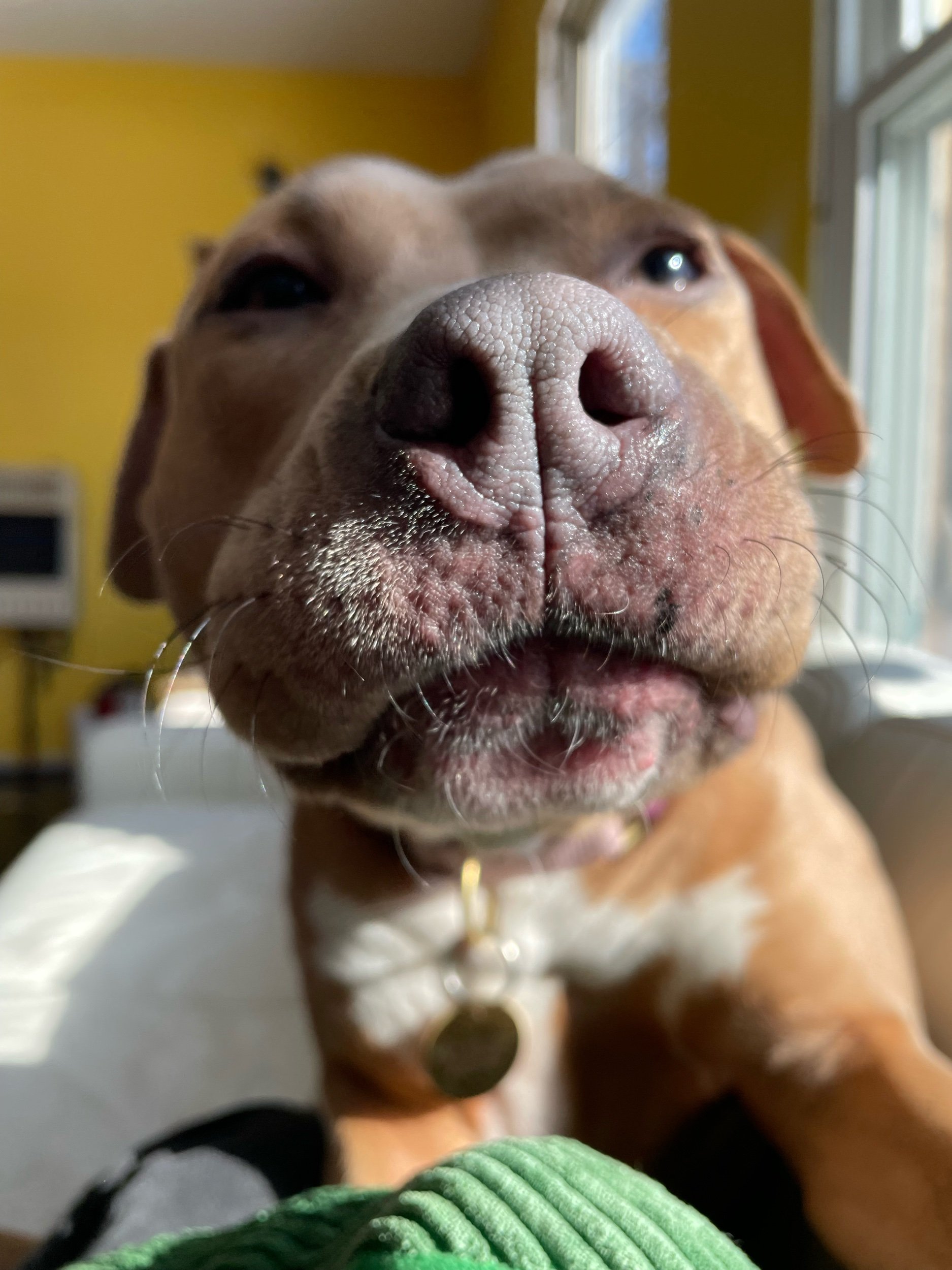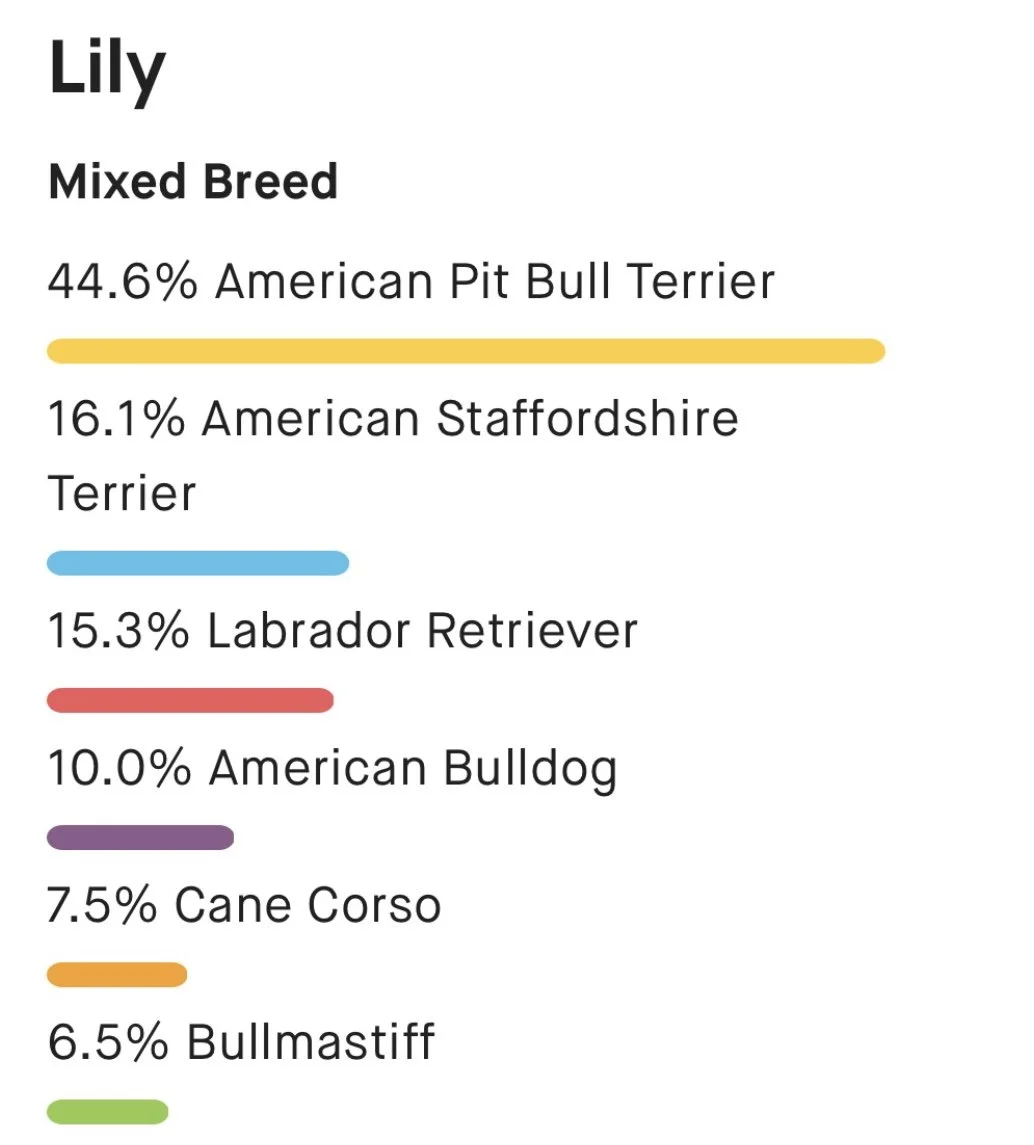Our Trainer
Ash Rose, CBCC-KA, CPDT-KA
They/them, she/her
Ash and Clark
About Me
I am a Certified Behavior Consultant Canine (CBCC-KA) and Certified Professional Dog Trainer (CPDT-KA) with over 15 years of hands-on experience in shelters, rescues, and private training. I train with around 200 dogs each year, specializing in fear, reactivity, and aggression. My continuing education includes Michael Shikashio’s Aggression in Dogs Master Course (2020) and the Shelter Playgroup Alliance’s Canine Assessment of Risk Program (2024). In 2024, I founded the Humane Training Alliance, where I serve as Executive Director.
I decided to become a dog trainer because of a dog I brought home when I was 17—Clark, a Pit Bull–Cattle Dog mix, who had a strong inclination toward aggression. She helped me find my purpose. Clark set me on a mission to help dogs like her, and the people who love them.
My path as a “crossover trainer” means I once used aversive tools like prong, choke, and electronic collars, but I no longer use these methods. Having been immersed in that ideology, I can empathize with those who still rely on it, while also knowing from firsthand experience that modern, ethical, and science-based training is far more effective and humane. Canine cognition is not so different from our own, and I believe in treating animals the way I wish to be treated.
Dogs are at the center of my life, but I also enjoy nature, music, working on my home in Detroit, fighting for social justice, building queer community, and spending time with my partners, friends, and family. I share a deep bond with my dog Lily, a six-year-old Pit Bull mix. Managing my depression, anxiety, ADHD, and chronic pain is an ongoing process, and the effort I put into caring for myself helps me better support the diverse needs of my clients. I foster dogs, volunteer with shelters, rescues, and outreach programs, and have a passion for education. I run free mentorship programs for BIPOC aspiring trainers, asking only that participants give back through shelter volunteer work.
My work in rescue and sheltering has given me a realistic and well-rounded understanding of dogs, and my learning journey is ongoing. I pursue continuing education through courses, conferences, workshops, books, seminars, and mentorship. I truly love helping my clients understand what’s going on with their dogs, many of whom experience fear, reactivity, or aggression, and collaborating with them to find effective, compassionate solutions.
Ash’s Dogs
Clark
I was visiting friends in Philadelphia and came across a dog tied up in Clark Park. A park resident said she had been there for three days, so I took this happy young dog back to Detroit with the intention of finding someone to adopt her. It quickly became apparent that she had some serious behavior problems: resource guarding, dog aggression, handling sensitivity, and anxiety. With few options other than behavioral euthanasia, I kept her. We went through a lot of trainers and training methods—scolding, extreme exercise, dominance rolls, prong, choke, and electric collars. It took me a long time to be steered towards reward-based training. I was led to believe that aggression needed to be met with intimidation and a heavy hand. I now know how effective it is to set dogs up for success and modify behavior using positive reinforcement. But I was doing the best I could for her with what I was presented at the time.
As part of trying to make up for what I put Clark through, and working to prevent others from having to go through the same things, I founded the Humane Training Alliance to help connect dog guardians with credentialed trainers who prioritize modern and ethical approaches.
Clark was the love of my life, my best friend, my sidekick, my hero. Incredibly intelligent, emotional, loyal, and adventurous. People who met her in her later years didn’t believe that she had been really aggressive. She loved me unconditionally. She changed my life completely. She set me on a mission to help dogs like her.
Clark died in March of 2022 of hemangiosarcoma. The grief still comes in waves, but the waves are softer now. I'm so grateful she came into my life. I know her impact will spread for many years to come.
Parker (aka Sharky)
Parker came in as a stray to the county shelter where I volunteered in Florida. He was quickly put on the euthanasia list for behavior. I pulled him along with many other dogs who I fostered, trained and adopted out. Parker got incredibly few adoption inquiries, and they were never a good fit for such a strong, high arousal dog. Parker helped me tremendously on my journey crossing over from old school compulsion training. I started him on a choke collar, but he helped me learn how much more fun, kind, and effective it is to train without corrections. I still hadn’t found him a home by the time I was moving back to Detroit, so I brought him along to continue searching for his perfect forever home. After two years, I was in love and decided that his place was with me.
He had me laughing out loud every day with his antics and uninhibited joy, made even sillier by his ridiculous overbite. He made sure to let everyone know how he was feeling and what he wanted, very loudly, all the time. He went from being on a shelter euthanasia list for dog reactivity, to being an awesome reactivity helper dog. His DNA test showed that he was 100% American Pit Bull Terrier. He loved food, training, throwing his toys around, rolling on his back and holding his toy up in the air with his paws, playing tug, cuddling, and woowooowooooooing.
In Sharky’s last year, what I thought was worsening arthritis turned out to be painful spinal myelopathy, a neurological issue. He went to a lot of physical therapy, which he loved because the amazing staff all became part of the Sharky fan club. I think he really loved to make people smile and laugh. He was euthanized in January of 2025. I loved him so much and was so lucky to have gotten stuck with him.
Lily (aka Dilly, Dill, Dilly Dog, Diddy, Diddle Diddler)
An aggressive dog named Lily came into a shelter as an owner surrender. The very next day, Lily gave birth to a litter of puppies. When euthanizing her and bottle feeding the puppies was looking like the only option the shelter had, I offered to foster her and the pups. In retrospect, the former probably would have been the best thing for her puppies due to the stress hormones she continued to pass to them through nursing and the severe behavior she demonstrated for them. It took a significant amount of training to deal with her reactivity. When someone was finally able to be in close proximity to her, Lily started showing appeasement behavior. Appeasement can be dangerous, because the dog can “quickly flip” from appearing friendly and affectionate (to those who don’t speak dog) to snapping or biting.
After fostering her for a year and assessing the risk of adopting her out, I decided to keep her. Thanks to Lil, I now have a huge passion for spreading awareness about appeasement behavior. Lily and her litter also gave me valuable first hand experience with the heritability of fear and aggression. Despite socialization efforts, the majority of the puppies she produced ended up having pretty severe genetic behavior issues.
Lily is an amazing companion for me. She snuggles me, makes me laugh, and keeps me safe. She’s so adorable and loves to carry around and show off her stuffed toys. She’s such a happy dog, and she continues to gain confidence, overcome challenges, and enjoy new experiences. She provides me with a tremendous amount of emotional support in a way that no other dog ever has. As our years together go on, our amazing bond continues to deepen. She’s about 6 now, and I hope we have many more happy years together.
